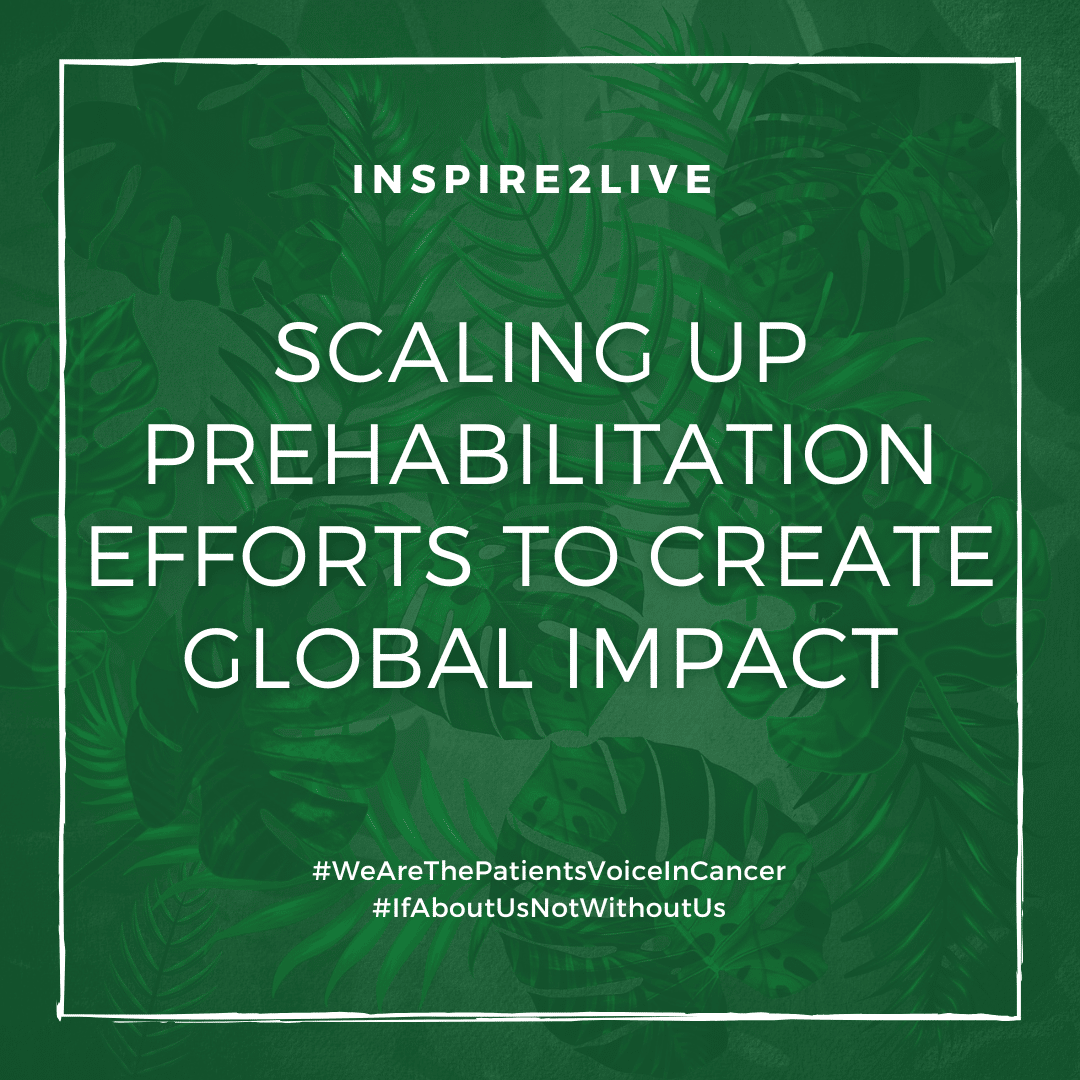For quite some time now, we’ve known that lifestyle has a big impact on people and the illnesses they might already have, or may be developing. Not just on cancer but also on diabetes and cardiovascular diseases. Yet why is it so hard to live well and stay healthy these days?
The world around us is developing at such a rapid pace that it’s hard to stay ahead. How do we know which products in the supermarket are actually healthy compared to those which look healthy but aren’t really that good for us? How can we stay active before, during and after treatment? How do we process all the information that gets thrown at us during our illness? You would think the answer to these questions would be quite easy but it isn’t. Of course there’s lots of general advice available which can be helpful but it still needs to be translated for each individual situation.
There are many prehabilitation initiatives and programmes which have been set up around the world with some amazing results. But how can we scale these initiatives so that more people can benefit? In the Netherlands, for example, there is a hospital where patients are encouraged to improve their fitness levels before they undergo surgery. It might seem like a strange idea but the results speak for themselves: The operations have a higher chance of success, there are less operative and post-operative complications and patients tend to stay less time in hospital after surgery. It’s also worth noting that most of them are fitter after their operation then when they were first diagnosed. It’s a great example of a programme which started small and local that is now the focus of an international study.
Scaling up successful programmes like these is just the first step but we are not there yet. How can we make sure that every patient has the opportunity to be part of a programme like this? How can we secure buy-in from health insurance companies and from political institutions? And, even more importantly, how can we make sure that knowledge doesn’t just stay within the higher income countries? How can we make sure that nations like Ghana or Kenya, for example, can also benefit from this knowledge and implement it locally?
This is one of the goals we are currently working towards at Inspire2Live.
Lex Houweling and Peter Kapitein
Patient Advocates, Inspire2Live

